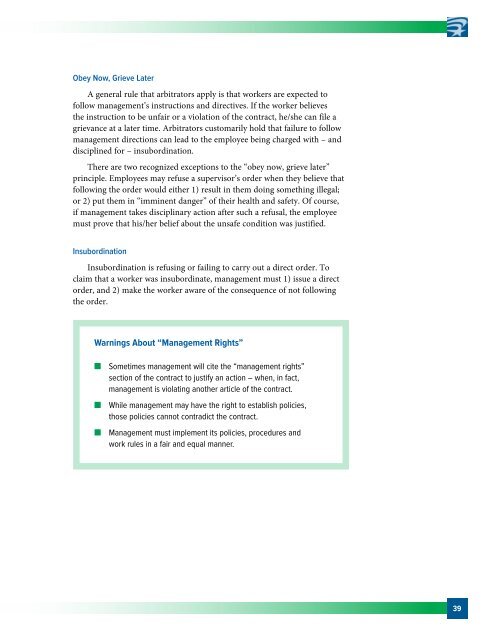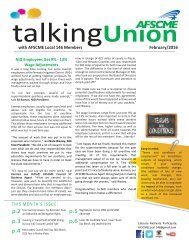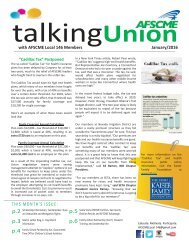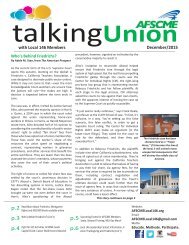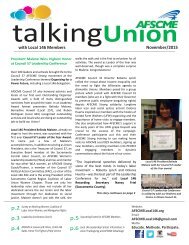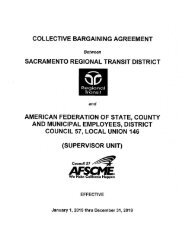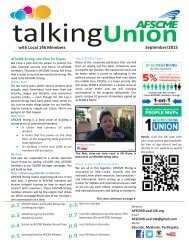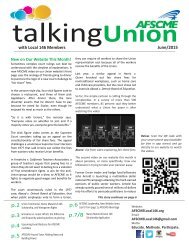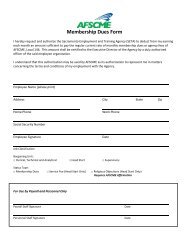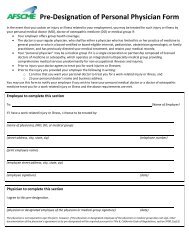STEWARD HANDBOOK
You also want an ePaper? Increase the reach of your titles
YUMPU automatically turns print PDFs into web optimized ePapers that Google loves.
Obey Now, Grieve Later<br />
A general rule that arbitrators apply is that workers are expected to<br />
follow management’s instructions and directives. If the worker believes<br />
the instruction to be unfair or a violation of the contract, he/she can file a<br />
grievance at a later time. Arbitrators customarily hold that failure to follow<br />
management directions can lead to the employee being charged with – and<br />
disciplined for – insubordination.<br />
There are two recognized exceptions to the “obey now, grieve later”<br />
principle. Employees may refuse a supervisor’s order when they believe that<br />
following the order would either 1) result in them doing something illegal;<br />
or 2) put them in “imminent danger” of their health and safety. Of course,<br />
if management takes disciplinary action after such a refusal, the employee<br />
must prove that his/her belief about the unsafe condition was justified.<br />
Insubordination<br />
Insubordination is refusing or failing to carry out a direct order. To<br />
claim that a worker was insubordinate, management must 1) issue a direct<br />
order, and 2) make the worker aware of the consequence of not following<br />
the order.<br />
Warnings About “Management Rights”<br />
n<br />
n<br />
n<br />
Sometimes management will cite the “management rights”<br />
section of the contract to justify an action – when, in fact,<br />
management is violating another article of the contract.<br />
While management may have the right to establish policies,<br />
those policies cannot contradict the contract.<br />
Management must implement its policies, procedures and<br />
work rules in a fair and equal manner.<br />
39


